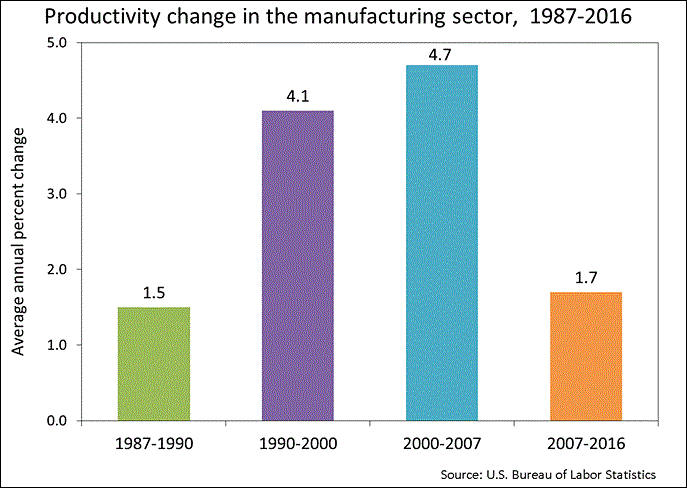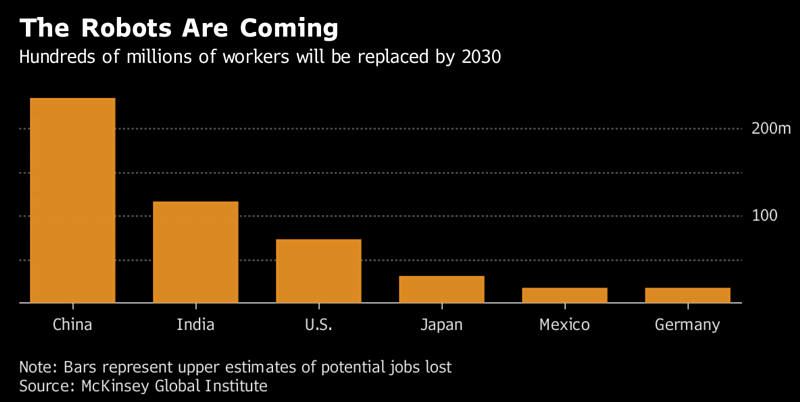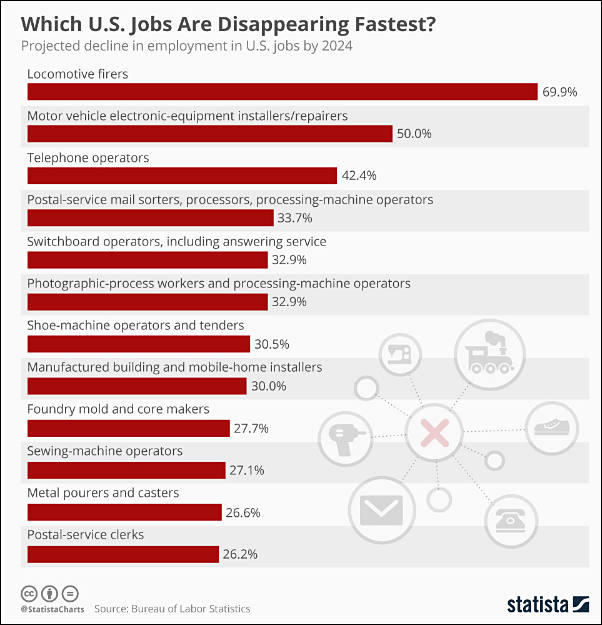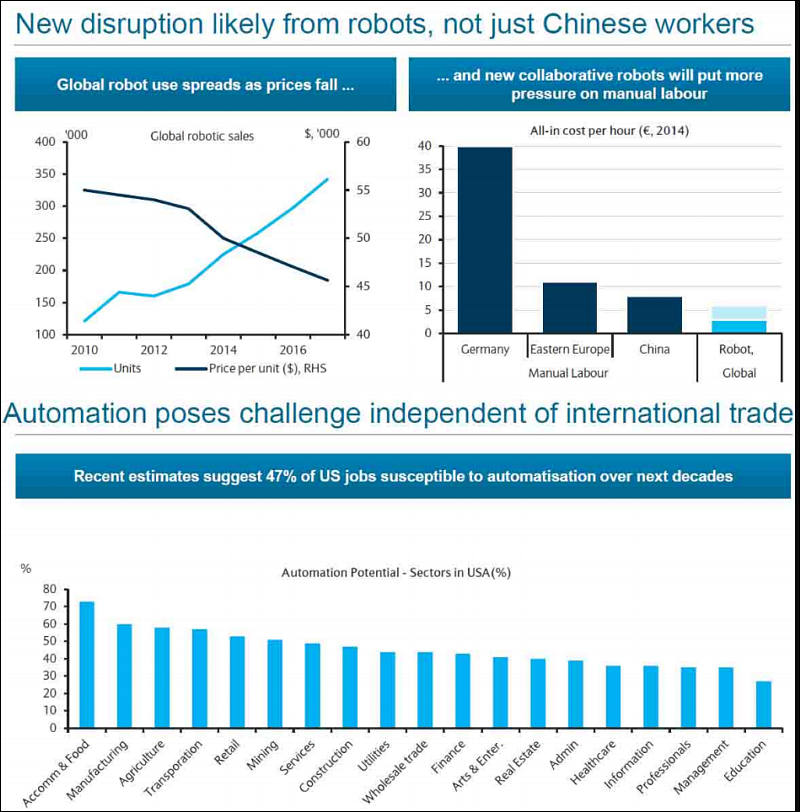
It allows to keep PV going, with more focus towards AI, but keeping be one of the few truly independent places.
-
As robots and other computer-assisted technologies take over tasks previously performed by labor, there is increasing concern about the future of jobs and wages. We analyze the effect of the increase in industrial robot usage between 1990 and 2007 on US local labor markets. Using a model in which robots compete against human labor in the production of different tasks, we show that robots may reduce employment and wages, and that the local labor market effects of robots can be estimated by regressing the change in employment and wages on the exposure to robots in each local labor market—defined from the national penetration of robots into each industry and the local distribution of employment across industries. Using this approach, we estimate large and robust negative effects of robots on employment and wages across commuting zones. We bolster this evidence by showing that the commuting zones most exposed to robots in the post-1990 era do not exhibit any differential trends before 1990. The impact of robots is distinct from the impact of imports from China and Mexico, the decline of routine jobs, offshoring, other types of IT capital, and the total capital stock (in fact, exposure to robots is only weakly correlated with these other variables). According to our estimates, one more robot per thousand workers reduces the employment to population ratio by about 0.18-0.34 percentage points and wages by 0.25-0.5 percent.
http://www.nber.org/papers/w23285.pdf
Interesting paper looking on people as on insects, who are stupid and are incapable of planning.

Reaction is strong with capitalism last years.

 sample1042.jpg687 x 488 - 65K
sample1042.jpg687 x 488 - 65K -
The thing is, robots entering the workplace isn't even really about robots. The coming age of robot workers chiefly reflects a tension that's been around since the first common lands were enclosed by landowners who declared them private property: that between labour and the owners of capital. The future of labour in the robot age has everything to do with capitalism.
-

As many as 800 million workers worldwide may lose their jobs to robots and automation by 2030, equivalent to more than a fifth of today’s global labor force.
That’s according to a new report covering 46 nations and more than 800 occupations by the research arm of McKinsey & Co.

 sa813.jpg800 x 402 - 34K
sa813.jpg800 x 402 - 34K
Howdy, Stranger!
It looks like you're new here. If you want to get involved, click one of these buttons!
Categories
- Topics List23,993
- Blog5,725
- General and News1,354
- Hacks and Patches1,153
- ↳ Top Settings33
- ↳ Beginners256
- ↳ Archives402
- ↳ Hacks News and Development56
- Cameras2,368
- ↳ Panasonic995
- ↳ Canon118
- ↳ Sony156
- ↳ Nikon96
- ↳ Pentax and Samsung70
- ↳ Olympus and Fujifilm102
- ↳ Compacts and Camcorders300
- ↳ Smartphones for video97
- ↳ Pro Video Cameras191
- ↳ BlackMagic and other raw cameras116
- Skill1,960
- ↳ Business and distribution66
- ↳ Preparation, scripts and legal38
- ↳ Art149
- ↳ Import, Convert, Exporting291
- ↳ Editors191
- ↳ Effects and stunts115
- ↳ Color grading197
- ↳ Sound and Music280
- ↳ Lighting96
- ↳ Software and storage tips266
- Gear5,420
- ↳ Filters, Adapters, Matte boxes344
- ↳ Lenses1,582
- ↳ Follow focus and gears93
- ↳ Sound499
- ↳ Lighting gear314
- ↳ Camera movement230
- ↳ Gimbals and copters302
- ↳ Rigs and related stuff273
- ↳ Power solutions83
- ↳ Monitors and viewfinders340
- ↳ Tripods and fluid heads139
- ↳ Storage286
- ↳ Computers and studio gear560
- ↳ VR and 3D248
- Showcase1,859
- Marketplace2,834
- Offtopic1,320









